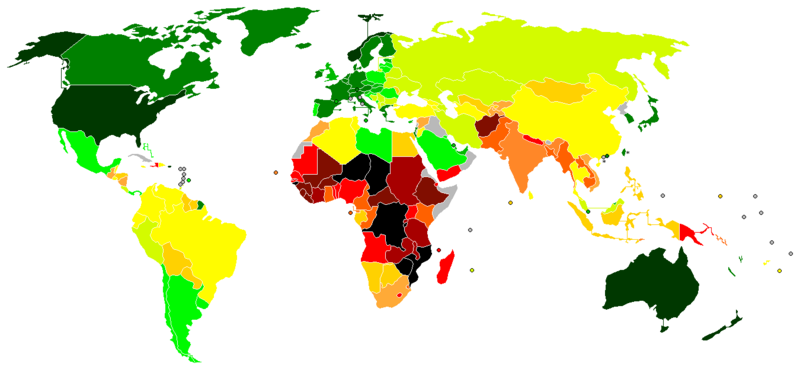Libya is different
March 02, 2011 | View Comments
The situation in Libya is very different to that of other Middle East and North African countries in revolt. Yet, the public opinion likes to put Libya into the same box.
Today, Libyan leader Gaddafi addressed on TV the recent developments in Libya.
You may think of the Libyan government and its eccentric leader however you want. But if you believe that Libya's uprising is similar to those in revolting neighbouring countries, then you're wrong.
What's happening in Libya is a civil war. Rebels are armed and they strategically capture cities and oil fields. This is very different to the peaceful demonstrations of millions of people that we've seen in images from Cairo.
A look at Libya's history and current state reveals that the situation in Libya is much different to that of neighbouring countries.
Libya is today arguably one of the most independent states of post-colonial Africa. It is widely accepted that Libya's welfare system is one of the best on the continent. From Wikipedia:
During the 1970s, the government succeeded in making major improvements in the general welfare of its citizens. By the 1980s Libyans enjoyed much improved housing and education, comprehensive social welfare services, and general standards of health that were among the highest in Africa.
(1969 is when Gaddafi came to power.)
In the Human Development Index, Libya is the only African state that reaches 0.75 points. It's the only green spot on the African continent for 2010:

In 1971, Libya kicked out British Petroleum. During the 70s, the state gained control of 70% of its oil production. State revenues from oil export more than quadrupled as the oil prices went up three times. And the benefitors were to a large extend the people of Libya.
Compare this to countries like Nigera, where Shell has lots of influence on the government and gets the best deals, at the cost of lots of suffering. There, welfare is virtually non-existant. Or take Saudi Arabia, where the oil revenues also benefit only a few.
And then countries like Nigeria that are practically in foreign hand and follow capitalist agendas are the ones that are opposed to the idea of an United States of Africa, which is Gaddafi's Pan-African effort with the goal of freeing more of Africa's countries from what is effectively colonialism in disguise. Surely, the recent developments in Libya will be a setback for these efforts. (See also Neocolonialism.)
NB: I'm not saying that Gaddafi is or is not unjustly using force against the people of Libya. That I can't assess. I'm merely trying to put things into perspective. [1]
In his TV appearance today, Gaddafi argued that there were no peaceful protests in Libya, as there were in Egypt or Tunisia. He said that the opposition forces are militants, and that they're are stragically targeting for the country's oil fields.
Update. See also:
- Libya rebels isolate Gaddafi, seizing cities and oilfields
- a United Nations Human Rights Council report on Libya from January 2011
- a BBC interview with Noam Chomsky from 8 March 2011 on the situation in the Arab world
| [1] | As it turns out, most claims of Gaddafi's human rights abuses turned out to be fabrications. See False pretense for war in Libya? [boston.com], Amnesty questions claim that Gaddafi ordered rape as weapon of war [independent.co.uk] and The Top Ten Myths in the War Against Libya [counterpunch.org]. |